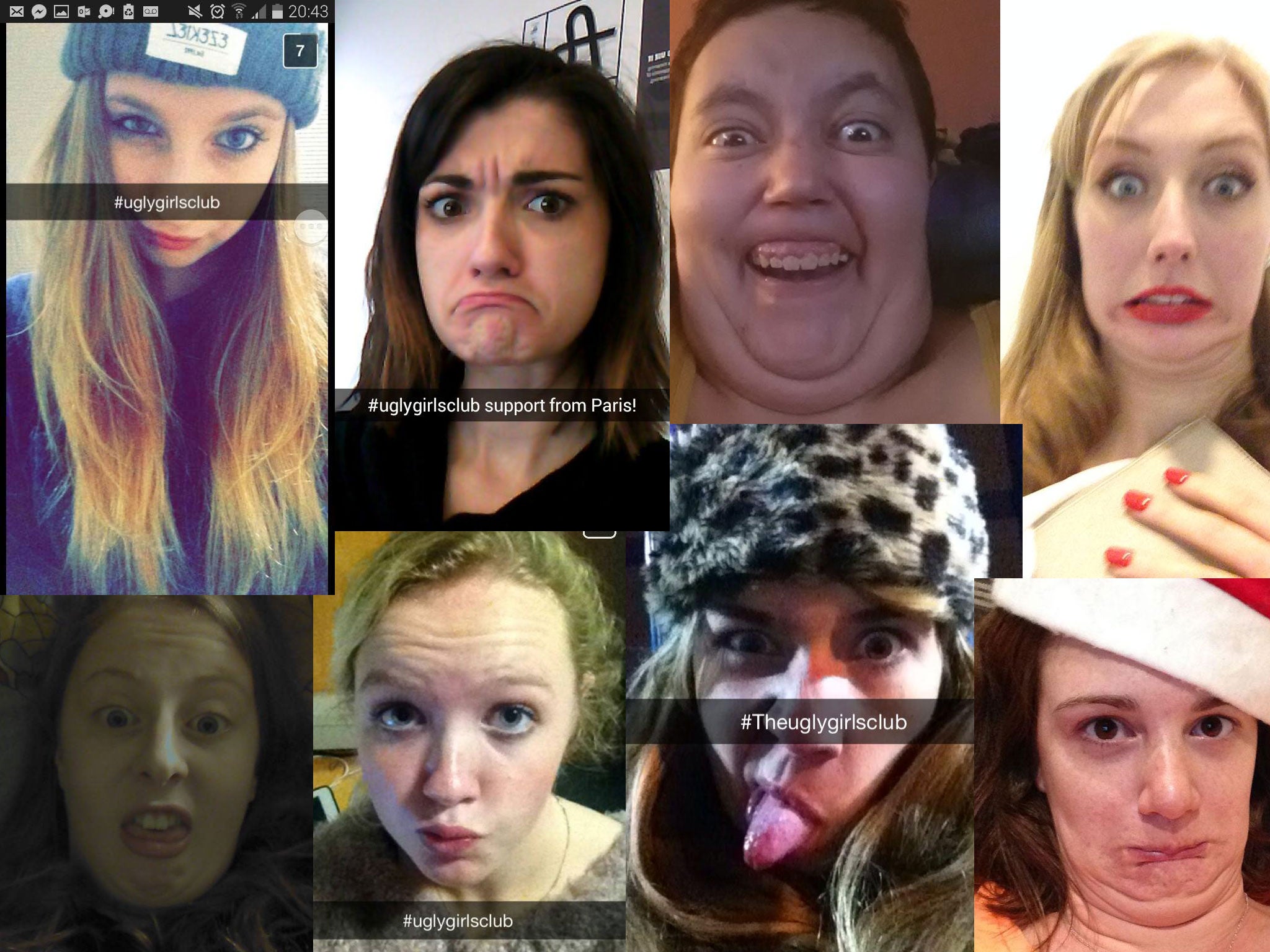Meet the Ugly Girls Club: The new face of student feminism
Royal Holloway's feminist society is making waves with its latest campaign

While running a stall for sexual consent at a student union club night, members of Royal Holloway’s feminist society overheard a nickname used to describe them: "The Ugly Girls Club".
Because this type of name-calling epitomizes the problem of female body image and social ideals based on appearance, group took it in their stride and in doing so, harnessed a perfect opportunity to turn society’s perverted standards on its head.
The group started sending each other photos of themselves pulling faces, captioning them #uglygirlsclub. It escalated from there. Natasha Barrett, president of the society and a second-year English Literature student, said: “It started very small, as a joke between society members that was a bit tongue-in cheek.”
With hundreds of selfies posted on Twitter in under two weeks and 4,000 Facebook fans, the campaign is blossoming into more than they could ever have imagined.
“We’ve had a lot of support from Exeter University and their feminist society there. They showed a massive amount of enthusiasm for it and we realised we should get in touch with more feminist societies," says Natasha.
“It’s becoming the case that there aren’t very many university feminist societies left that we haven’t heard from. We've had support from America, Canada and Australia as well. It's really cool - even people from Oklahoma!”
Despite their disbelief, the campaign has flagged up a problem that “definitely strikes a chord” with a lot of women and men: “It is such a broad thing that came from our own personal feelings and experiences and we think people relate to that.”
“We're challenging conventional roles, sexist traditions and speech, which judge people for their appearance rather than their substance, traits, policies or achievements.”
Natasha and the other members, although unfazed by the original comment, which they found comical, are fully aware of the unfortunate picture it paints of society: “I definitely think the stereotype is a problem. The hairy, angry, ugly feminist cliché comes up all of the time.”
"We’ve all been exposed to it. We have a page for our university where people report sexist experiences and arguments spring up a lot there.”
The perpetrator represents experiences the society has been through before, and the stereotype that people still maintain.
“The specific ‘Ugly Girls Club’ comment was a bit of a defence thing,” Natasha said. “No one really expects our society to be out on pub nights, and they make assumptions which aren’t true. They were surprised that we were there, we were successful and that we were running a good stall that was getting a lot of attention.”
A survey carried out by NUS has highlighted the dangers of lad culture on campuses. Of 2,000 male and female students surveyed, a third has had sexual comments directed at them that made them feel uncomfortable. It also found two thirds had heard rape jokes while on campus.
The survey showed a further 60 per cent of students who said they were not aware of any policies or action undertaken by their universities to tackle sexual harassment, unwanted advances or intimidation. Although Natasha and society members agreed lad culture was a constant problem, they praised Royal Holloway and the Student Union for its positive actions, such as sexual consent workshops and the recent Reclaim Your Campus campaign.
The Royal Holloway men's rugby team have also been working with the student union and have been getting involved with sexual consent workshops to “get away from the lad stereotype”. Natasha cites Amnesty International, the women’s rugby team and the debating society as other factions of the union who they have collaborated with. “A lot of the time societies come to us when they have something happening that has a feminist perspective. We're also going to be doing a video campaign on the definition of feminism. We've found a lot of people on campus who don't know what it means and we get wrongly judged.”
Natasha hopes the campaign will reach out to people who may not have related to feminism in the past, so “personal, own brands” within the movement can be born. “My brand of feminism may not be like yours, or Beyonce’s, Emma Watson's or any political figures or whoever. It’s about having that conversation and finding what you’re comfortable with.”
“I grew up in Cheshire, where it was difficult to have access to information about feminism,” she recalls. “I guess I heard the word at 13 or 14, but I never had any idea what it meant. Then I found this group of people and I realised that I found the movement where my opinions were a part of something important.”
Behind the snowballing success of the Ugly Girls Club lies a very simple motivation: “Maybe it makes people feel better, maybe people won't wear makeup today because the campaign inspires them to feel okay with their appearance. Or maybe they will because they can do what they want. I think we want to create a safe space, inspire and empower people.”
Join our commenting forum
Join thought-provoking conversations, follow other Independent readers and see their replies
Comments